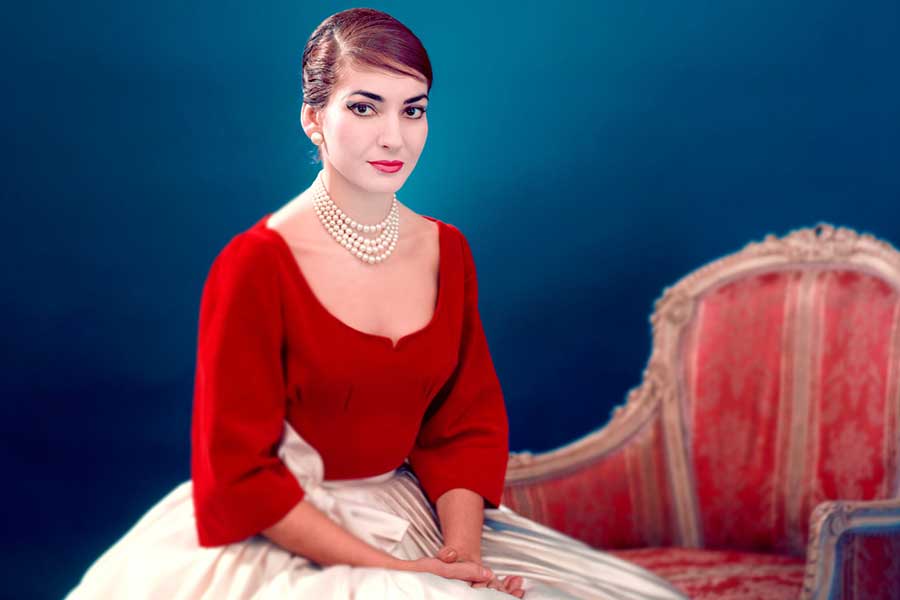The term “diva” is so dreadfully overused to characterize a woman who is considered petty or difficult that its true meaning has gotten lost.
In the film “Maria by Callas,” released briefly in theaters in November and due out this weekend on DVD and BluRay, director Tom Volf provides a love letter of never-before-seen footage and performances and paints the portrait of what a diva was and is, on stage and off: 20th-Century opera legend Maria Callas.
The film offers insight and intimacy into the life and career of the renowned singer through her own voice in vintage interviews, family photos, filmed stage vehicles (very often, grainy Super 8mm home movies), bits of unpublished memoir and letters written to friends such as Grace Kelly and Walter Annenberg. Narrated handsomely by opera singer Joyce DiDonato, the film gives audiences a rare, raw glimpse into a tempestuous, nervous, sensual, exhausted, depressed and daring human working without a script or a net.
Who dares do that today, without it being a bigger plan toward publicity, Lady Gaga and Madonna?
From film’s start (a lengthy, black-and-white British television interview between David Frost and a gorgeous, severe Callas) it’s is all her. Callas is speaking and singing for herself, without rude talking heads or additional critics and narrators.
Callas had quite enough of that — other people’s opinions — during her too brief life and career. (She died from a heart attack at age 53 in 1977).
A singer in her youth through the hard, cold auspices of a demanding mother, Callas was characterized as a diva almost from the start for her longtime, messy love affair with a married man when she too was married. That man was Greek shipping tycoon Aristotle Onassis, whom she tenderly calls “Aristo” throughout the narration.
The reputation was also garnered due to her regular opera walkouts and her all-around hard-to-handle nature. “I don’t like being pushed around,” Callas announced at one point in the film. Yet in the next moment, she could be overcome by a nervous tremble and filled with weakness and pain.
“There are two people in me,” Callas stage-whispered to Frost during their interview. “I would like to be Maria, but there is the Callas I have to live up to.”
Her speaking and singing entirely for herself means that, on occasion, “Maria by Callas” and, by association, director Volk (currently finishing his third book on the legendary soprano) lose all aspects of dialogue, of perspective, of critical distance.
Even some of the facts of her life and easy biographical elements are muffled: that she was a heavy Brooklyn kid who moved to Greece to study and that she long had a rivalry with fellow opera singer Renata Tebaldi. We witness the breakdown of her marriage, but we gather little from the archival newsreel footage other than a cool, workmanlike distance between partners, a body language that is the total opposite of the casual cool she shows when teamed with Onassis (who very nearly gets as much screen time as she does).
Yet, Volf’s up-close-and-personal, gentler look at Callas allows other, more deeply personal elements to pop through, as she complains on more than one occasion about wanting to have been a mother (the centerpiece of being a woman — such an old-fashioned statement, though claimed with self-deprecation), and how she sacrificed that goal to maintain her career.
It is this — her art and career — mythical performances of Bizet and Bellini brought blazingly and achingly to life, the gossipy talk of the missed 1958 performance of “Norma,” and most especially her nuanced and mountainous interpretation of the “La Mamma Morta” aria from “Andrea Chenier.” LGBTQ audiences know it from Tom Hanks’ Oscar-winner performance in 1993’s Philadelphia, that towers beyond all of the tempestuous personality quirks and torrid love affairs.
Brava.
